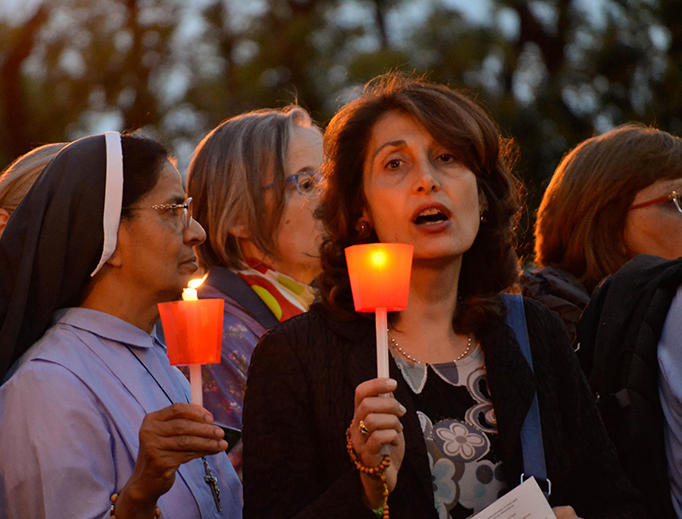What the New CARA Study Tells Us About US Catholic Women
The study surveyed 1,508 Catholic women about what they believe and how they practice their Catholic faith.

A recently-published study by CARA (Center for Applied Research in the Apostolate) raises concern for me about the role of US Catholic women in the Church.
The study, Catholic Women in the United States: Beliefs, Practices, Experiences, and Attitudes, was sponsored by America Media and surveyed 1,508 adult women who self-identify as Catholic in August 2017 about what they believe and how they practice their Catholic faith. The survey asked questions about the Mass, Reconciliation, belief in God, and prayer habits, among others. While the results actually were better than a similar study conducted in 2011, they are far from optimal.
You can read the entire study yourself here, but here are some findings I’d like to point out.
- The study found that less than half of Catholic women in the U.S. attend Mass on a regular basis and of the ones who do attend, only 20 percent go weekly and just 4 percent go more than once per week.
- Regarding their belief in God, 78 percent are certain God exists, but 16 percent sometimes have doubts, 4 percent have frequent doubts, 2 percent are agnostic, and 0.4 percent are atheists.
- Only 3 percent of Catholic women go to confession monthly or more often, 32 percent go less than once a year, and 38 percent say they “never” go to confession. This is understood to reflect that going to confession is something they have done in the past but have made the conscious decision to stop gong and not ever go again.
- The ladies did a bit better on the prayer scale, with a tad more than half (51 percent) saying that they pray daily. Twenty percent pray less than daily but at least once a week. Eight percent pray less than weekly but at least once a month. Thirteen percent say they pray several times a year and 7 percent pray rarely or never. Not surprising is that 80 percent of women who do pray do so during a crisis and 70 percent pray when they feel blessed.
- Only 45 percent of those surveyed said that receiving Holy Communion is a very important factor in their sense of what it means to be Catholic.
- 49 percent strongly agree that they’re proud to be a Catholic.
Not a pretty picture, although I admit that it’s not as bad as it could be. What bothers me is not so much the statistics, but the fact that there are women who identify as Catholic but don’t take advantage of the amazing and grace-filled opportunities the Church has to offer – namely, the sacraments. The fact that there are women who identify as Catholic but doubt or refute the existence of God baffles me.
If this study were about Catholic men, I would be concerned as well. It’s no secret that the Church has lost some followers in recent times. We need more and dedicated followers of both genders who will live the faith fully and carry it on to the next generations.
But as women, we have a different kind of responsibility toward the Church. Women are the “heart” of the Church. Generally speaking, women are more religious than men. That’s not to say that men are not religious, nor does it suggest that men don’t have a heart. What is means is that women tend to be more perceptive to spiritual things and more inclined to religious devotion (consider these studies cited in a Pew Research Center article). Usually, its women who are the nurturers, whether it be children, homes, relationships, or the faith. If we women are letting ourselves slip in terms of our Catholic faith, then what?
Not one to point fingers, I have first to look to myself before I look to other women. I have females in my life who struggle with their faith. I have females in my life who struggle with life in general. What have I done to reach out to them, help nurture their faith, and draw them back into fervent Catholicism? If I may speak broadly here, perhaps all Catholic women should ask the same question of themselves. Ladies, we have the gift of nurture and an aptitude for the spiritual. I fear that we don’t use it to its full potential, especially regarding the Church. That makes me wonder if we are, at least in part, responsible for those CARA statistics.












